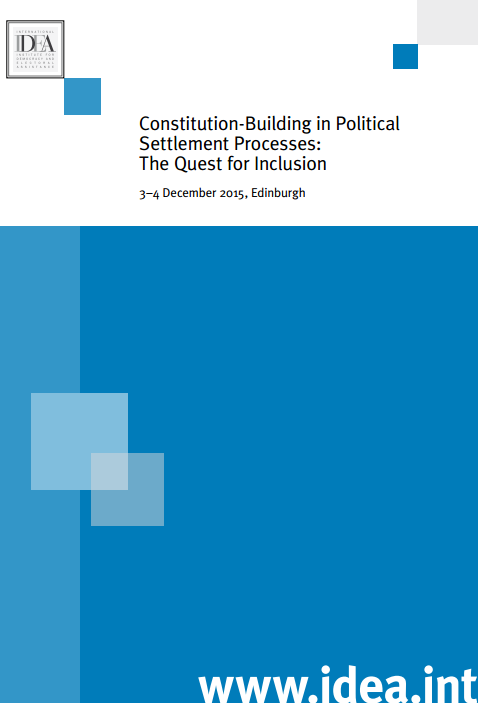Constitution-Building in Political Settlement Processes: The Quest for Inclusion
This workshop was organized and hosted by the Constitution-Building Processes Programme of the International Institution for Democracy and Electoral Assistance (International IDEA), the Edinburgh Centre for Constitutional Law and the Global Justice Academy, in association with the Political Settlements Research Programme at the University of Edinburgh. It explored the first stage of the transition from violence to politics, which potentially includes a sequence of political agreements from a peace deal to a (new) constitutional arrangement.
The political settlement process is generally understood as ‘the forging of a common understanding usually between political elites that their best interests or beliefs are served through acquiescence to a framework for administering political power’ (Di John and Putzel 2009: 4). The workshop also examined how political settlements emerge and which actors and processes shape these settlements, and explored the relationship between peace agreements and constitutions during the broader political settlement process. In addressing these questions, workshop participants were asked to: define political settlements, assess the role of elite bargains (and who is included and excluded), evaluate the types of guarantees that should ensure implementation of the agreements, consider the most effective timing and sequencing of events to reconfigure the political settlement, and identify which factors are crucial to peace sustainability.
